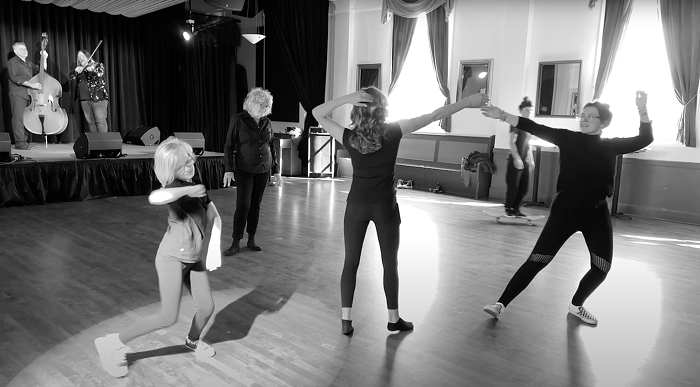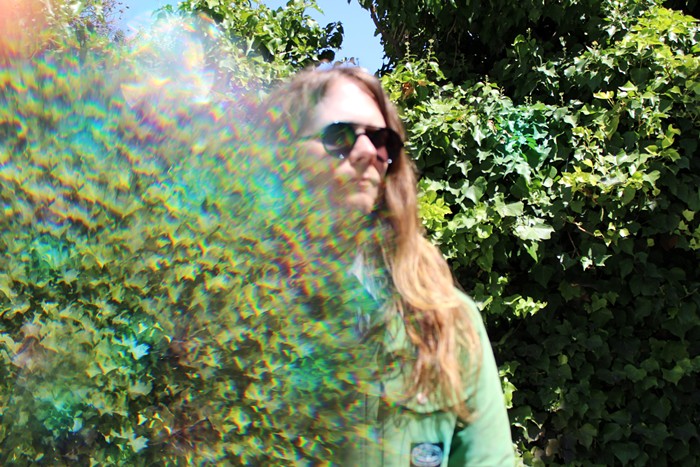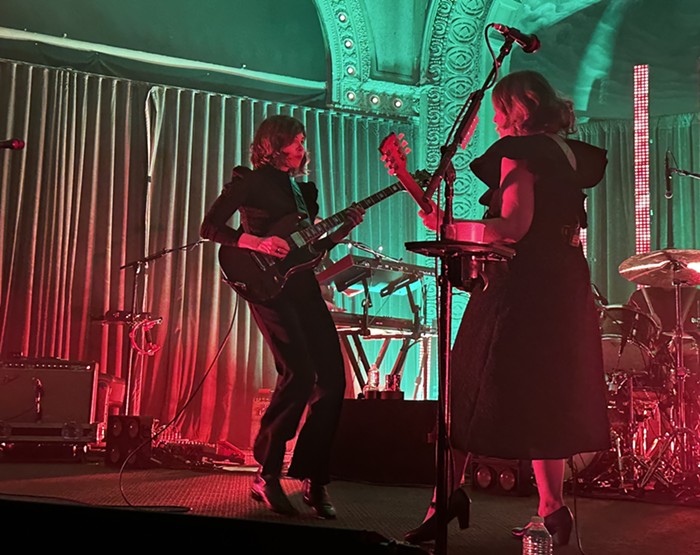RYAN ADAMS' last solo Portland show* was a disaster.
The performance took place at the Roseland on April 24, 2006, during the height of Adams' drug problems—he was addicted to heroin-and-cocaine speedballs, which are probably the worst thing you can get addicted to. He also was suffering, undiagnosed, from Ménière's disease, which made him dizzy and disoriented under bright stage lights. The show, to be frank, was an absolute shambles, as Adams struggled to complete a single song. He'd begin a number like "Dear Chicago" or "My Winding Wheel," and it would sound magnificent—really, magnificent—for a minute, but Adams would lose either the thread or his nerve, and trail off. He wandered into the wings between songs. He played gloomy, unheard material like "Everything Dies" on the piano. Eventually, things got so bad that Grateful Dead bassist Phil Lesh came out to salvage things, and the two did an aimless, pretty awful 45-minute jam to end the show.
It was a monumentally frustrating experience for me, a Ryan Adams defender. As long as eight years ago, Adams had earned a healthy share of detractors, but I was never one of them.
I'd seen him live once before with his band the Sweetheart Revolution, and it was brilliant—like, Exile on Main Street-era Stones brilliant. Adams' post-Whiskeytown solo debut, 2000's Heartbreaker (that's the one with "Come Pick Me Up"), was a defining album for me, and 2001's Gold (that's the one with "New York, New York") got me through a pretty difficult time living in post-9/11 lower Manhattan. In the years that followed, Adams was steadily, generously prolific, which made tracking down his recordings—official and bootlegged alike—a source of immense pleasure. Buried along with mixed bags like 2005's Cold Roses and 2002's Demolition were absolute masterpieces: the two Love Is Hell EPs from 2003 and the still-unreleased The Suicide Handbook, which Adams recorded sometime in between Heartbreaker and Gold.
But Adams let his genius crush him in all-too-common rock-star circumstances, and by 2006 he was in obviously bad shape. It was an immense relief, then, to hear he got sober later that year, and it's been gratifying to hear him putting his shit back together in the albums since. Perhaps it's true that the rougher, more interesting edges have been sanded off in his recent discography. By cashing in on the soft-rock sound that he, perhaps oddly, seems to gravitate toward (when he's not doing genre goofs like 2010's vinyl-only metal album Orion), Adams has given us competent, enjoyable records like 2007's Easy Tiger and 2011's Ashes & Fire. They're—to use the word with which Neil Young once disdainfully described Harvest, his most successful album—"fine."
And that was the way I felt upon hearing Adams' newest album, the self-titled, self-assured Ryan Adams. It's "fine," I thought. Containing 11 smooth, watertight, warm-sounding slices of adult-folk-rock-contempo, I supposed it was the Ryan Adams we need right now: solid, subtle, steady, and most importantly, sustainable.
Then I found the other album he put out this year: 1984, a 7-inch record containing 10 short bursts of Hüsker Dü-informed punk. Under Adams' touch, these sketches are transformed into sweet starbursts of candy pop, with his innate knack for melody compressed to the point of explosiveness. It's a fucking terrific record, easily my favorite thing he's done since Love Is Hell. And when 1984 cropped up on Spotify I made a playlist, for a laugh, that interspersed tracks from 1984 and Ryan Adams.
Something unexpected happened: While it induced a fair amount of aural whiplash, the shuffled playlist brought out the very best in both recordings. Instead of trampling their gentler counterparts, the snotty, aggressive 1984 tracks elevated the easy-breezy-beautiful Ryan Adams ones—the offhand, throwaway nature of the 7-inch meshed oddly well with the full-length's careful poise. When juxtaposed with the fuzzy, galloping "When the Summer Ends," a forlorn acoustic song like "My Wrecking Ball" becomes more painful, more exquisite. And next to the razor-edge of "Wolves," the studied fussiness of "Feels Like Fire" evaporates, transforming it into a keen, yearning, post-punk anthem.
I simply changed the frame, though, not the content. What makes these Ryan Adams songs good is not what context they're placed within. What makes these Ryan Adams songs good is Ryan Adams. That live-wire jolt of electricity that hums, loudly, through Heartbreaker and Love Is Hell, that set off brilliant showers of sparks at that Sweetheart Revolution show I saw in 2002, that nearly fried the man alive during his black period—that powerful current hasn't disappeared by any means. It's still fully present in his work, thank god, even if it takes a little digging to find it. And thank god, he's learned how to handle it.
[*CORRECTION: Ryan Adams and the Cardinals performed at the Aladdin Theater on July 26, 2007. The original version of this article suggested that the 2006 Roseland show was Adams' most recent Portland performance.]



















